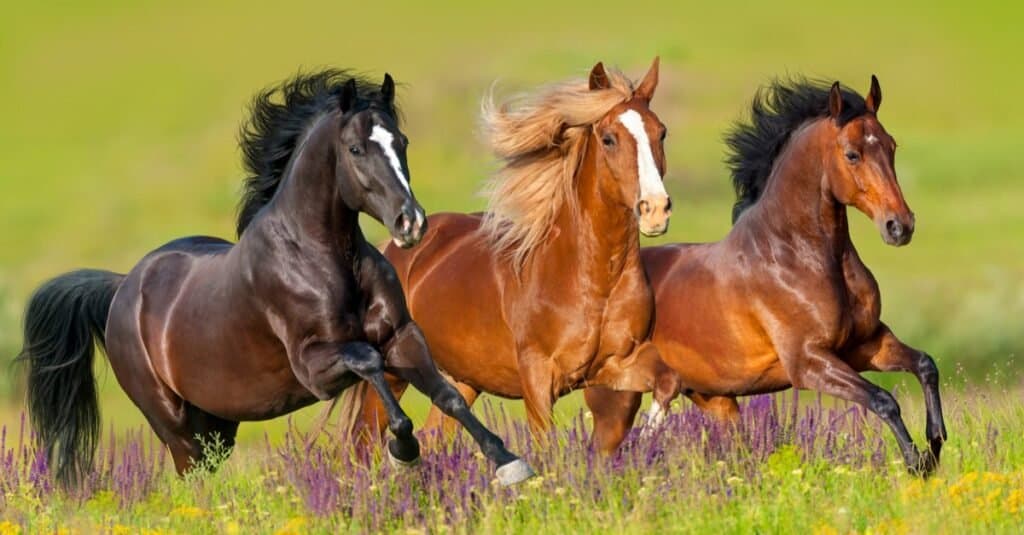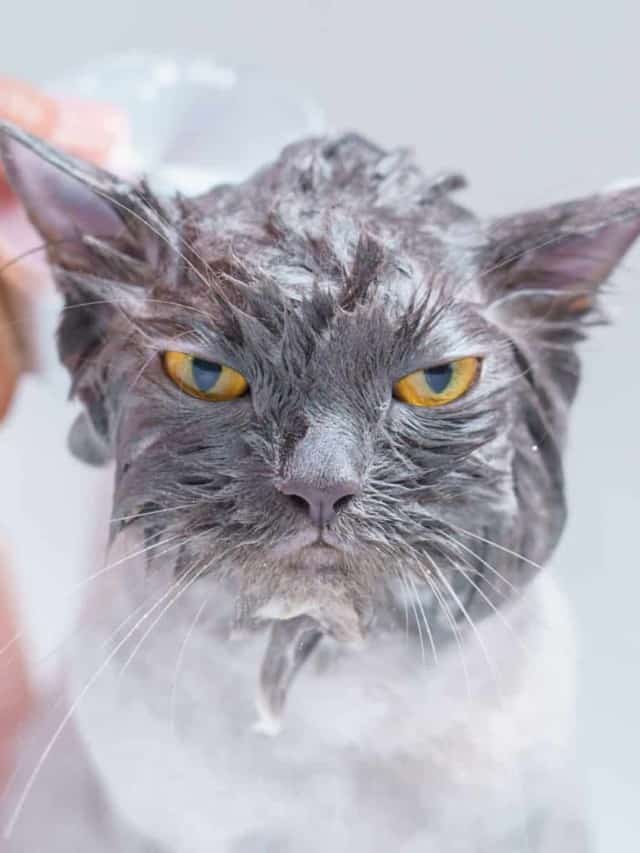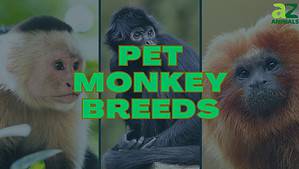We use idioms throughout our daily lives in conversation, such as monkey‘s uncle. These sayings often describe positive or humorous situations. Others, we apply sarcastically or in disbelief. We can trace the “monkey’s uncle” idiom to the late 1800s, one we still use today. Of course, we are also fond of using other expressions about monkeys and a wide range of other animals. But, let’s delve into the meaning and origin of a “monkey’s uncle” and other expressions about monkeys and animals.

A group of monkeys is a troop and not a monkey’s uncle, although this idiom has plenty to do with monkeys and Charles Darwin.
©Millie Bond – Copyright A-Z Animals
What Is the Meaning of a “Monkey’s Uncle?”
The idiom, “monkey’s uncle” or “I’ll be a monkey’s uncle,” indicates surprise, astonishment, amazement, shock, disbelief, or skepticism. People often use this expression when being sarcastic but also to express mild to extreme emotions. Additionally, we frequently say ‘why’ or ‘well’ before the idiom in examples like these:
- “He borrowed money from me to pay his rent but bought new clothing? Well, I’ll be a monkey’s uncle.”
- “Our boss wants us to work overtime, but he won’t pay us extra? Well, I’ll be a monkey’s uncle!”
- “I’ll be a monkey’s uncle; it’s snowing in July!”
What Is the Origin of a ‘Monkey’s Uncle?’
“Monkey’s uncle” originated as a response to Charles Darwin’s theory of evolution. Like we use the phrase sarcastically, people also used it as a sarcastic response to Darwin and his theory. Charles Darwin published The Origin of Species in 1859 and the evolutionary theory titled The Descent of Man in 1871. In The Descent of Man, Darwin theorized that humans descended from apes and are closely related to the modern age. Science and society did not receive his evolutionary theory well when it was published, as they considered it ridiculous and offensive. They also dismissed it as going against Christianity and God’s word.

Charles Darwin is most famous for his theory of evolution.
©Everett Collection/Shutterstock.com
It is unclear who first said, “I’ll be a monkey’s uncle.” Still, the saying became a response to the revolutionary theory published by Charles Darwin. As time progressed, people began to use the phrase as a general expression to express doubt, disbelief, or sarcasm towards the revolutionary idea. Today, many use the term mainly in situations to express surprise and shock.
Another idiom involving monkeys is “monkey see, monkey do.” This idiom describes situations where one person foolishly copies another person. Some people will use this term to convey their thinking about or to others as them being mischievous or derisive if they believe they lack critical thinking.
Other Idioms Involving Animals
Although a “monkey’s uncle” is a popular idiom involving this primate, many other sayings also include animals.
Here are some other expressions that involve animals:
- “You have ants in your pants.” This idiom means someone is fidgety or unable to sit still because they are nervous or excited.
- “A cat nap.” Like a cat, this saying refers to someone enjoying a short nap.
- “Cat’s got your tongue.” Someone will use this saying when someone is quiet or has nothing to say. Unfortunately, it is often used sarcastically.
- “Chicken out/they were too chicken.” Here, someone refuses to do something because of fear or anxiety.
- “Clam up.” Clamming up refers to someone becoming quiet suddenly and being unresponsive.
- “Copy cat.” This idiom describes someone who copies something like behavior, painting, style of dressing, a piece of writing, and everything in between.
- “Dog days.” We use this saying to describe scorching hot days.
- “Dropping like flies.” People use this expression to describe something or someone that has quickly died or has given up.
- “An eager beaver.” This idiom characterizes someone excited to do particular work or for a specific event.
- “Fishy.” We use this idiom to describe odd or suspicious behavior or activity.
- “Have a cow.” If someone is unnecessarily upset about something minor, you may describe them as having a cow. This expression is similar to the saying about making a mountain out of a molehill.
- “Hold your horses.” People say this when they are trying to persuade someone to be patient.

Thoroughbreds are among the fastest horses, making them the best horses for racing. Because horses are swift and powerful, “Hold your horses” means exercise patience.
©Kwadrat/Shutterstock.com
Many Idioms Involve Animals
- “Holy cow!” This expression is typically an exclamation of surprise or disbelief.
- Horse around.” We sometimes use this saying to describe people playing around – not taking things seriously or playing roughly or roughhousing.
- “Get the lion‘s share.” This idiom means to get the biggest portion or percentage of something.
- “In the dog house.” You guessed it! When someone uses this phrase about you or vice versa, you, or they, are in trouble.
- “Kill two birds with one stone.” You achieve two things simultaneously or perform one action and achieve two outcomes.
- “Let the cat out of the bag.” Someone reveals a secret.
- “A little birdy told me.” But, of course, when a little birdy tells you something, they share a secret, and you don’t want to reveal their identity.
- “Make a beeline.” If you head straight for something, you’re making a beeline. This idiom is similar to “As the crow flies,” meaning you use a direct route to get to a destination.
- “Nest egg.” This idiom explains saving money to use as a safety net in the case of trouble or to secure a comfortable future.
- “Pig out.” When you overeat, someone may say that you ‘pig out.’

“It’s raining cats and dogs” is an idiom we use to describe heavy downpours of rain.
©iStock.com/Karin Chantanaprayura
And a Few More…
- “It’s raining cats and dogs.” The rain is pouring heavily down when a person uses this expression.
- “Rat race.” This idiom describes the fierce, competitive struggle for a position of power or job position. People may also use it to describe the perpetual quest for wealth while sacrificing a quality lifestyle.
- “I smell a rat.” Similar to the “fishy” idiom, this explains the feeling or noticing of suspicious behavior.
- “Straight from the horse’s mouth.” When information comes directly from the source, the original person who said something, it comes from the horse’s mouth.
- “Take the bull by the horns.” If a person faces a challenging or dangerous situation boldly and without showing fear, they take the bull by the horns.
- “Until the cows come home.” This idiom translates into a situation that continues for an extended period without reprieve.
Up Next
More fascinating articles about our closest relatives – monkeys!
- Are Monkeys Primates?
- The 5 Ugliest Monkeys In the World
- Can Monkeys Swim?
- Group Of Monkeys and Their Behaviors?
- 9 Most Beautiful Monkeys In the World
The photo featured at the top of this post is © Gabi Siebenhuehner/Shutterstock.com
Thank you for reading! Have some feedback for us? Contact the AZ Animals editorial team.







